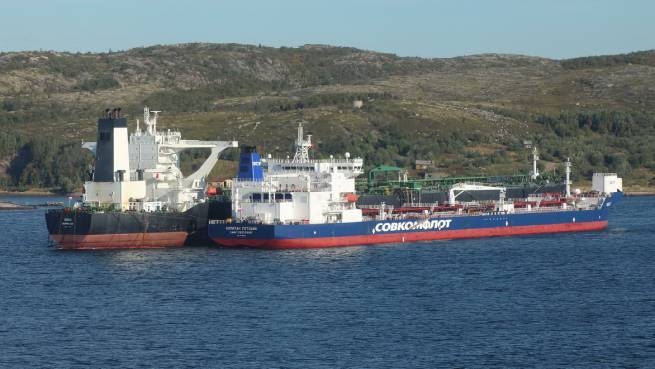Since the beginning of this year, at least 23 million barrels of Russian oil have been transshipped from one tanker to another in the Greek Gulf of Lakonikos for further sale in circumvention of sanctions.
How informs Bloomberg, a few miles off the Greek coast, is one of several that traders have used to overcome sanctions. EU against Russia. According to the agency, at least 23 million barrels of crude oil and additional volumes of oil products were pumped from one tanker to another. At the same time, the Greek authorities say there is limited scope for intervention, since the oil is transshipped outside the 6-mile border of the country’s territorial waters.
Bloomberg notes that traders and shipping companies have found many ways to ensure the flow of Russian oil, and what is happening near Greece is just the latest example. Similar activity has been observed near Ceuta, a Spanish enclave in northern Africa. A huge shadow fleet of tankers has also been organized to help the country overcome the sanctions.
Several key services are required to safely move cargo at sea, ship to ship or STS. EU companies are only allowed to provide these services if the cargo on board is purchased at or below the G7 price. Once the cargo has been swapped, receiving tankers ship the oil thousands of miles to Asian buyers. The publication notes that many of the vessels involved are too old, and their insurance status is unclear. The average age of tankers carrying oil from Greece is 18 years.
Ship-to-ship transfers are not inherently risky, but they involve two ships sailing the sea, transferring potentially polluting cargo from one to the other.
Under European Union rules, companies are required to carry out due diligence, including verifying and collecting certificates confirming that oil cargoes are purchased at a limited price. The authorities should also carry out inspections and control of companies. However, penalties for non-compliance are not strong enough, creating a limited dissuasive incentive for owners and companies not to help transport Russian cargo.







More Stories
Real estate: investment interest in private islands in Greece
Eurostat: what goods and services do Greeks purchase online?
Optimistic forecasts for the Greek economy